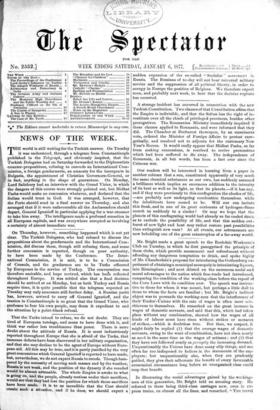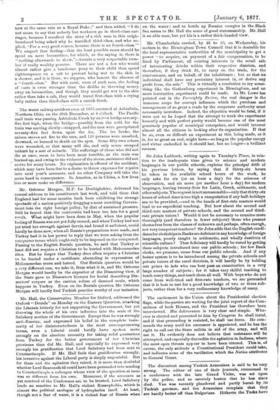In illustrating the social advantages gained by the working- men
of this generation, Mr. Bright told an amusing story. He referred to there being third-class carriages now, even in ex- press trains, on almost all the lines, and remarked, "You travel
now at the same rate as a Royal Duke ;" and then added, "1 do not mean to say that nobody but workmen go in third-class car- riages, because I recollect the story of a rich man in this neigh- bourhood being asked why he travelled third-class, and who re- plied, For a very good reason, because there is no fourth-class." We suspect that feeling—that the least possible sums should be spent on mere locomotion, for which, as the saying is, there is "nothing afterwards to show,"—haunts a very respectable num- ber of really wealthy persons. There are not a few who would almost rather give a handsome pony to their child than spend eighteenpence on a cab to prevent being wet to the skin in a shower, and it is those, we suppose, who lament the absence of a "fourth-class." But with most, even of such men, the feeling of caste is even stronger than the dislike to throwing money away on locomotion, and though they would get wet to the skin rather than take a cab, they would travel first-class with a crying baby rather than third-class with a smock-frock.










































 Previous page
Previous page